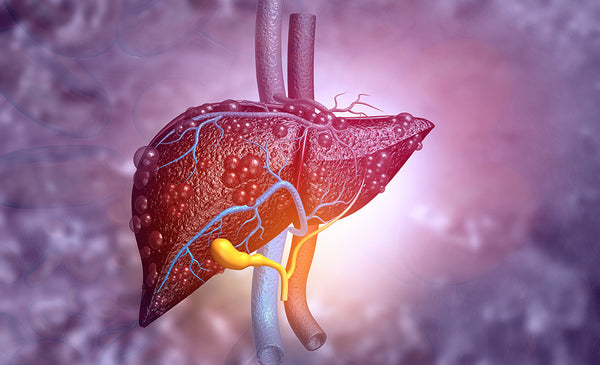10 Ways to Heal from Adrenal Fatigue
The term adrenal fatigue is used to refer to a range of non-specific symptoms that include tiredness, nervousness, body aches, digestive problems, sleep issues, and even eating disorders. It usually afflicts individuals who have the tendency to push themselves to the limit in everything that they do. In most cases, these people overwork, overtrain, and overthink – they’re also the biggest critics of their own lives, constantly striving for perfection and success or prioritising everyone else instead of themselves.
What causes adrenal fatigue?
If you’re suffering from the symptoms of adrenal fatigue, chances are that there's a communication breakdown in your central stress response system. This can take place somewhere along the way between your hypothalamus and pituitary gland, or between your pituitary gland and the adrenals. This pathway is called the hypothalamic pituitary adrenal (HPA) axis and is what signals the release of the stress hormone, cortisol.
While there are many causes leading to adrenal fatigue, the main contributing factor can be summed up in two words – chronic stress. That’s why the most effective way to begin healing your symptoms and preventing a reoccurrence is with stress management practices.
For healing to occur it’s important to STOP ignoring the signals your body is sending. Moving forward, every activity in your day must work in harmony with the natural curve of normal stress hormone release (being highest in the morning and lowest in the evening).
How to heal from adrenal fatigue
1. Listen to signals from your body.
When you're tired, SLEEP. When you're hungry, EAT. Do not push yourself to the limit as this is exactly how we throw our natural rhythms out of sync. Prioritise how your body feels, not how much work needs to be done.
2. Transform your nutrition.
Eat well-balanced meals to allow for a steady release of energy rather than peaks and troughs. It’s important to gain energy from nutrition rather than relying on spikes in adrenaline and cortisol. Choose foods which are unprocessed and sugar-free. You can find a wide variety of healthy food choices in our Happy Hormones 8-Week Program. Your daily meals should incorporate foods rich in B vitamins, magnesium, quality proteins, fibre and omega 3, among others.
3. Make sure you have good sleep hygiene.
Just like babies many of us need to be prepared for sleep, particularly those with adrenal fatigue. Pushing past that sleepy phase will only spike cortisol and leave you wired before bedtime. Try to always get into bed at a time which allows for 6-8 hours of sleep. Your sleep routine might involve a slow walk after dinner, essential oils in your diffuser, a cup of passionflower and skull cap tea, ten minutes of reading or a short meditation.
4. Avoid caffeine or stimulants.
Black tea, coffee, chocolate or anything caffeinated will create unwanted spikes in cortisol and place an added burden on our adrenals. The same goes for dramatic television shows, bright lights from electronic devices and rigorous exercise late in the day.
5. Implement a daily practice that brings peace and calm.
This may sound quite simple but it’s really something so many of us overlook from day to day. Instead of using alcohol or sugar as a stress reliever, try deep breathing, a hot bath, a walk in nature, yin yoga or meditation.

6. Practice mindfulness and being present in every moment.
Mindfulness is becoming a common practice in addressing the trap of overthinking and worrying. Nowadays, there is even research which uses cortisol and hypothalamic pituitary adrenal (HPA) axis function as a marker for improvement in mindfulness-based stress reduction treatments.
7. Avoid intense or yang-style exercises.
These will only lead to further burnout. Instead, opt for more calming or yin movements like tai chi, stretching, qi gong, walking, swimming, and yin yoga.
8. Treat any underlying health concerns.
If you have a concurrent issue such as hormonal imbalance, Hashimoto’s, depression or hypothyroidism, it’s very important to address it promptly. The physical stress of such conditions will contribute to your compromised adrenal function and slow down your healing process.
9. Make time for the things you are passionate about!
Ask yourself, what is it that lights you up? When was the last time you connected with the things that bring you joy? Set aside a minimum of 30 minutes every week to engage in something you truly feel passionate about. If you’re not sure what these are anymore, start brainstorming or take a walk down memory lane.
10. Find a high-quality herbal formula which contains adaptogenic herbs.
It’s important you choose restorative herbs which act as a tonic rather than those which simply aim to ‘boost’ your energy. The latter will only further deplete your adrenal function. Options include Rehmannia glutinosa, Withania somnifera (Ashwagandha or winter cherry), Eleutherococcus senticosus (Siberian ginseng), and Ocimum sanctum (holy basil).
You may also choose to include herbs which manage anxiety or aid sleep, depending on your specific symptoms. Happy Hormones contains two western herbal medicines which help bring down anxiety and support your adrenals.
A new and healthy YOU!
You now have the naturopathic foundation for a therapeutic treatment plan for adrenal fatigue. All of the steps listed above will improve both your mental and physical response to stress. This is the correct path to take towards natural and holistic healing.






















